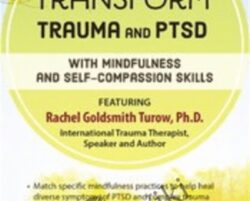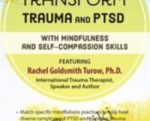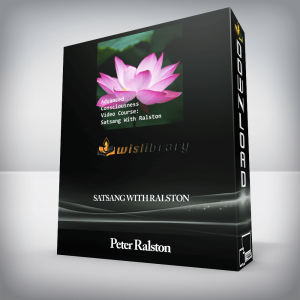Match specific mindfulness practices to help heal diverse symptoms of PTSD and complex traumaA rare opportunity for you to learn how to apply mindfulness skills to trauma and PTSD!Discover a toolkit of mindfulness skills so that you can personalize your approach to clients’ unique trauma symptoms and therapy preferencesThe multitude of difficulties stemming from trauma – emotional, cognitive, physical, spiritual, and relational-can overwhelm both trauma survivors and you as their clinician. You face a unique constellation of challenges with each client. Luckily, mindfulness practices can provide bountiful avenues towards trauma recovery and posttraumatic growth. Mindfulness skills offer an ideal synthesis of focusing on the “here and now” and healing layers of trauma-related distress. Using specific mindfulness techniques, you can target each client’s unique symptom profile to reduce experiences such as:AnxietyAvoidanceDepressionHypervigilanceDissociationSelf-criticism, self-blame, and self-hatredIntrusionsRelationship disturbancesBeyond decreasing symptoms of trauma and PTSD, mindfulness skills can provide a lasting foundation for overall health, resilience, and well-being.Join Dr. Turow, author of Mindfulness Skills for Trauma and PTSD: Practices for Recovery and Resilience (Norton Professional Books, 2017), as she distills her clinical and research expertise to pinpoint specific mindfulness techniques for common responses to trauma. By implementing these skills in your practice, you can confidently guide traumatized clients to tolerate and transform distress, promote bodily relaxation, and shift self-criticism to self-compassion.Evaluate the mechanisms through which mindfulness practices can improve PTSD, anxiety, and depression.Explore techniques to enhance clients’ sense of safety and control when implementing mindfulness skills to heal after trauma.Analyze the scientific research supporting Mindfulness-Based Stress Reduction (MBSR) and Loving Kindness Meditation (LKM) to help clients heal.Categorize differences among trauma symptom profiles (e.g., PTSD vs. complex trauma) that can inform how to choose effective mindfulness practices.Incorporate specific mindfulness techniques to manage dissociation, hypervigilance, intrusions, avoidance, relationships, and self-criticism.Teach mindfulness and self-compassion skills for treating PTSD and related conditions.Plan a personalized mindfulness program to nourish yourself when treating traumatized clients to improve your therapeutic presence in-session.Get Transform Trauma and PTSD with Mindfulness and Self-Compassion Skills of author Rachel Goldsmith Turow only price 79$Relevance for TraumaThe role of mindfulness and self-compassion in evidence-based therapies for PTSDCognitive Processing TherapyProlonged ExposureNon-judgment, metacognition and re-perceiving in the context of trauma-related:ShameGuiltSelf-criticismSelf-blameDirect attention to help with trauma related symptoms such as:IntrusionsAnxietyDepressionDissociationSkills to build bodily and emotional awareness after:AvoidanceNumbingDissociationCommon misconceptions and stumbling blocksMindfulness Practices for Trauma and PTSDThe scientific evidence for trauma:Mindfulness-Based Stress Reduction (MBSR)Loving Kindness Meditation (LKM)Mindfulness-Based Cognitive Therapy (MBCT)Mindfulness-Based Exposure Therapy (MBET)How mindfulness and self-compassion decrease psychological symptomsEvidence-based specific mindfulness practices for survivors of:Interpersonal violenceChildhood emotional, physical, and sexual abuseCombat traumaMilitary sexual traumaDisastersMatch Mindfulness & Self-Compassion Skills to Trauma-Related SymptomsMindfulness skills for specific challenges:DSM-5® PTSD symptomsDepressionAnxietySubstance abuseRelationshipsMindfulness practices for complex trauma and post-trauma worldviewsBuild compassion and self-compassion after traumaExperiential Training in Mindfulness & Self-Compassion Skills for Trauma and PTSDThere’s more in this moment: Broaden attention to reduce sufferingPractice the small stuff to train for the big stuff— from a single breath to feared actionsRespect and re-appraise intrusions, core beliefs, and self-judgment about having PTSDBodily awareness and relaxation to manage hypervigilance/hyperarousalSelf-compassion and loving-kindness for trauma,PTSD and self-criticismSpecial Considerations when Practicing Mindfulness for TraumaClient safety, choice and empowerment with respect to bodily practicesNon-pathologizing stance to trauma symptoms and treatment obstaclesBalance neutral mindfulness practices to build skills with practices related to trauma symptomsCalibrate exposure to distressing material both within therapy and between sessionsMindfulness & Self-Compassion Practices for the Clinician to Prevent BurnoutBalancing attention to self and otherTherapist mindfulness and self-compassion practice improves client outcomesModeling mindfulness and discerning self-disclosurePrevent burnout; differentiate between empathy, compassion fatigue and compassion satisfactionGet Transform Trauma and PTSD with Mindfulness and Self-Compassion Skills of author Rachel Goldsmith Turow only price 79$Tag: Transform Trauma and PTSD with Mindfulness and Self-Compassion Skills – Rachel Goldsmith Turow Review. Transform Trauma and PTSD with Mindfulness and Self-Compassion Skills – Rachel Goldsmith Turow download. Transform Trauma and PTSD with Mindfulness and Self-Compassion Skills – Rachel Goldsmith Turow discount
 VIP Members Area – Lindsay Wilson
₹12,118.00
VIP Members Area – Lindsay Wilson
₹12,118.00
 Design A Complete Responsive Business Website From Scratch – Godson Thomas
₹6,308.00
Design A Complete Responsive Business Website From Scratch – Godson Thomas
₹6,308.00
Transform Trauma and PTSD with Mindfulness and Self-Compassion Skills – Rachel Goldsmith Turow
₹12,450.00






